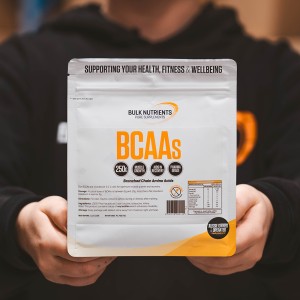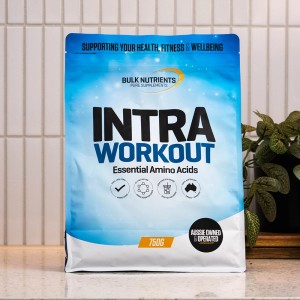Will a Vegan Diet Help Me Lose More Weight?
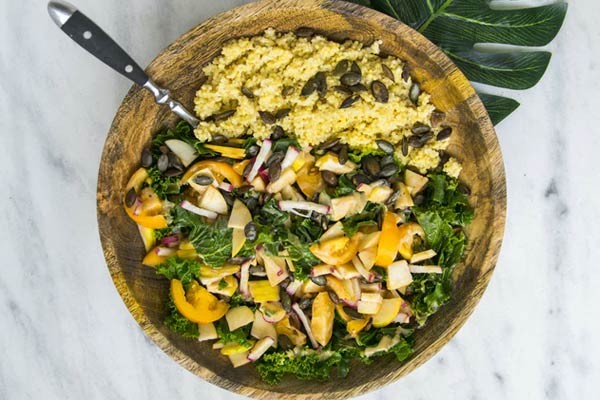
Veganism: does it lead to weight loss?
Naturally, vegans consume fewer calories than omnivores. This is because they are more limited to the foods they can eat. So right away, there's a positive. Other research has found that vegans have a lower risk of being overweight. Great! So we should all switch to being vegans and lose more weight, right?!
Well, not so fast.
Because, whilst this research examined 55,459 healthy women, they weren't women on a calculated and structured fat loss diet.
The point is if you've set up a weight loss diet properly, whether or not you're vegan or omnivore won't hinder your fat loss efforts. But, if you don't want to think about macronutrients, don't want to fret about a calorie deficit, and just want to adopt a diet that's likely to help you eat less, then becoming a vegan might be a good way to do it (providing you're happy to go without animal products). And such would only be a good decision if you were getting enough protein every day.
Vegans and protein: Why they don't get enough
Vegans tend to get less protein than omnivores because plant-based foods are simply lower in protein. When fat loss is the goal, getting optimal protein is key. This is because:
- Protein makes you fuller than carbohydrates or fat
- Protein is burnt up significantly more (by as much as 30%) by your body when you eat it. For example, 100 calories from protein mean your body burns 30 of them just digesting it.
- A diet high in protein leads to greater diet satisfaction, meaning you're more likely to stay on the diet and lose weight.
So if you're wondering why all weight-loss diets encourage high-protein, wonder no more! This is where vegans can find fat loss troublesome -- they crave more foods because they don't experience satiety as easy as an omnivore. They may be more likely to reach for fat and sugar-loaded high-calorie sweets. Omnivores simply chow down on a steak and some salad, and get adequate protein and can be satisfied. But vegans must be more strategic (more on that in a moment).
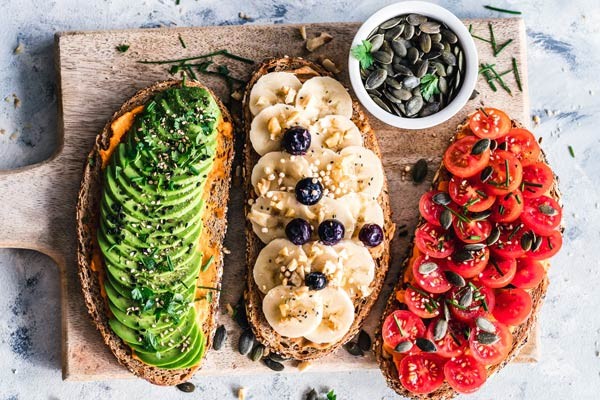
Skinny-fat: Does becoming a vegan make me skinny-fat?
Within pop culture, people talk about a "skinny-fat" physique as being an undesired one. A "skinny fat" physique displays low levels of muscle mass and higher levels of body fat, but in a way that still makes the individual look smaller and "skinny" as opposed to obese. This can come about by eating a mild calorie surplus for an extended period without any weight training and not consuming enough protein to support muscle tissue and any additional growth.
The average vegan may not be at risk of eating a calorie surplus as easily (as we've learned), but it can easily happen in the modern world. And if you couple that with NO weight training, and inadequate protein, then one becomes a sure candidate for a "skinny-fat" physique.
The way around becoming "skinny-fat" is easy: get enough protein and start weight training.
Planning your fat loss diet as a vegan
So we know the importance of protein for fat loss, but how much do you need? Recent recommendations suggest 2.3 - 3.1 grams of protein per kilogram of body weight per day.
Let's use the example of Bulk Nutrients customer "Toby", who wants to lose fat and weighs 85 kilograms. To set Toby's protein we would multiply 85 kilograms by 2.3 and get 195.5 grams of protein per day.
Whilst Toby's fat and carbohydrate intake are beyond the scope of this article, the fact is his calories would need to be set at a 20% calorie deficit for fat loss. If Toby's TDEE (total daily energy expenditure) was 2500 calories, his fat loss diet would need to be set to 2000 calories. It would then look like the below:
- Protein = 197 grams (788 calories)
- Fat = 68 grams (612 calories)
- Carbohydrates = 150 grams (600 calories)
- TOTAL = 2000 calories.
Keeping the spotlight on protein, and vegans are also encouraged to eat even more protein than is recommended to ensure they get enough leucine; one of the key amino acids that allow for muscle growth.
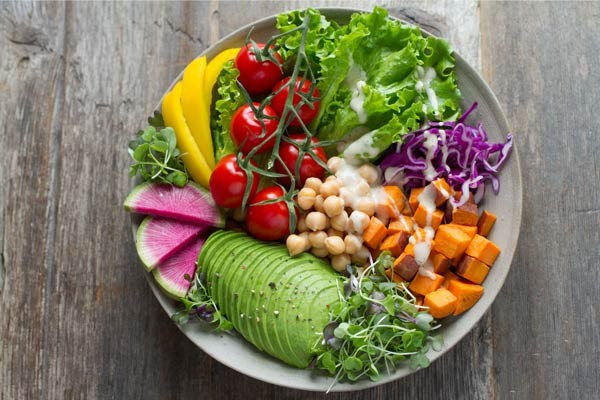
Here are some examples of some quality vegan protein that is also high in leucine:
| Food | Protein per 100g |
|---|---|
| Pumpkin seeds (dried, uncooked) | 30.2 |
| Lentils (red, split, uncooked) | 24.6 |
| Black beans (uncooked) | 21.6 |
| Almonds (raw) | 21.2 |
| Tempeh | 20.3 |
| Tofu (calcium set) | 17.3 |
| Oats (rolled) | 16.9 |
| Quinoa (uncooked) | 14.1 |
Table adapted from Rogerson, 2017. The best supplements for a vegan: muscle growth and fat loss
If your levels of protein and leucine worry you, we have two supplements that can take care of this for you:
- Our Bulk Nutrients Intra Workout protein has 21 grams of protein and 3.4 grams of leucine per serve.
- Our Bulk Nutrients BCAAs have 2.5 grams of leucine and 5 grams of protein per serve.
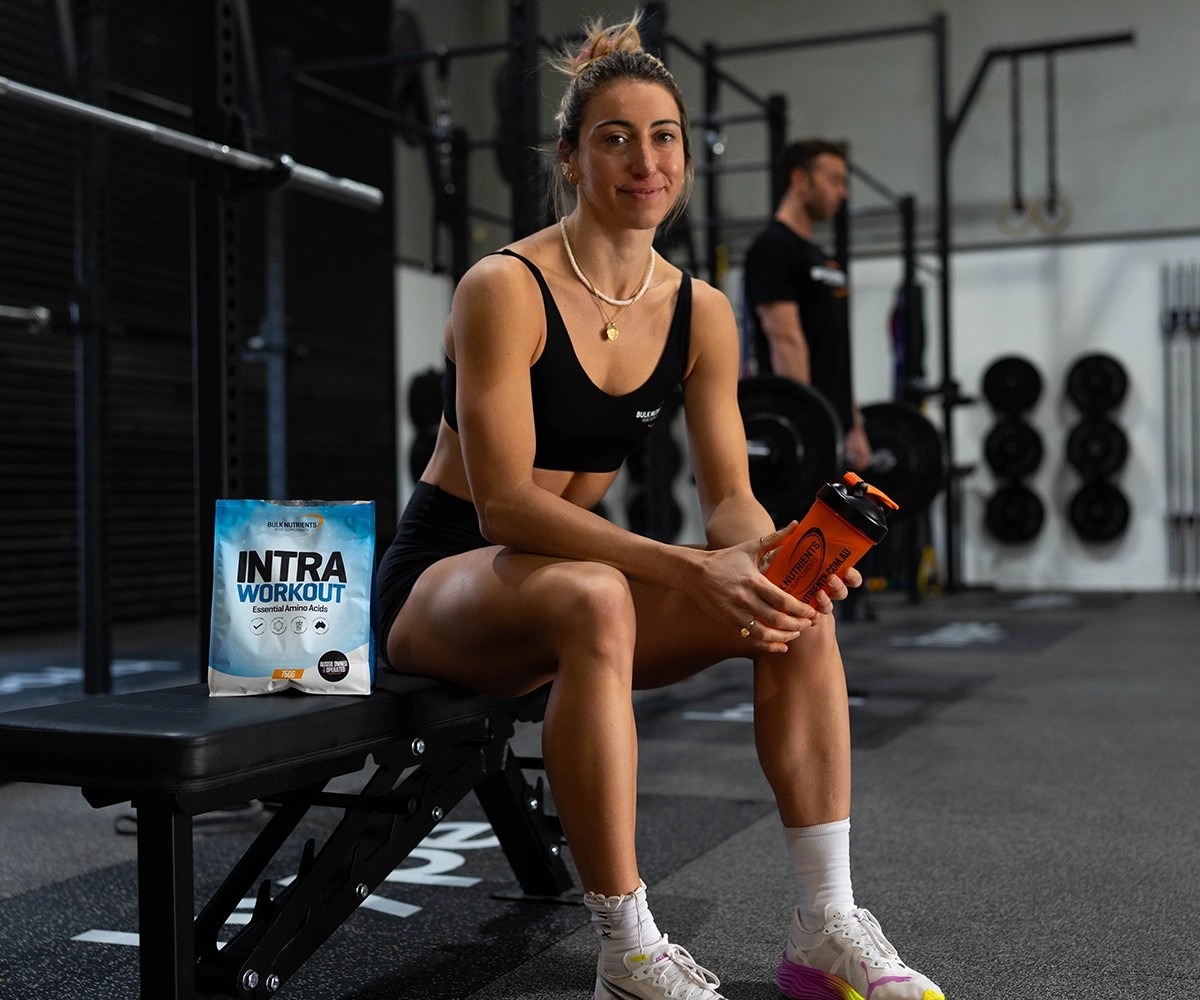
So hypothetically, "Toby" is eating enough quality protein sources (and thus leucine) via food and supplements. Therefore, weight training or not, he's not going to be overweight. And if he's weight training, then there's no way he's going to become "skinny-fat."
Whilst the average person in the street who is a vegan is likely to be leaner than the average omnivore who doesn't do any exercise either, such truths don't cross over to vegans (or omnivores) who have a calculated dietary strategy with a strong emphasis on protein. There is simply no weight loss benefit to a vegan diet when calories (and protein) are matched -- as fat loss is governed by an energy deficit irrespective of where the calories come from.
It comes down to this: vegan or omnivore -- with a properly calculated calorie deficit and adequate protein -- it won't make a difference to your fat loss results. But in the context of inactive people, adopting a vegan diet generally means you'll eat fewer calories than an omnivore.
References:
- Clarys P, Deliens T, Huybrechts I, Deriemaeker P, Vanaelst B, De Keyzer W, Hebbelinck M, Mullie P. Comparison of nutritional quality of the vegan, vegetarian, semi-vegetarian, pesco-vegetarian and omnivorous diet. Nutrients. 2014 Mar 24;6(3):1318-32. doi: 10.3390/nu6031318. PMID: 24667136; PMCID: PMC3967195.
- Helms ER, Zinn C, Rowlands DS, Brown SR. A systematic review of dietary protein during caloric restriction in resistance trained lean athletes: a case for higher intakes. Int J Sport Nutr Exerc Metab. 2014 Apr;24(2):127-38. doi: 10.1123/ijsnem.2013-0054. Epub 2013 Oct 2. PMID: 24092765.
- Newby PK, Tucker KL, Wolk A. Risk of overweight and obesity among semivegetarian, lactovegetarian, and vegan women. Am J Clin Nutr. 2005 Jun;81(6):1267-74. doi: 10.1093/ajcn/81.6.1267. PMID: 15941875.
- Pasiakos SM, McLellan TM, Lieberman HR. The effects of protein supplements on muscle mass, strength, and aerobic and anaerobic power in healthy adults: a systematic review. Sports Med. 2015 Jan;45(1):111-31. doi: 10.1007/s40279-014-0242-2. PMID: 25169440.
- Pesta DH, Samuel VT. A high-protein diet for reducing body fat: mechanisms and possible caveats. Nutr Metab (Lond). 2014;11(1):53. Published 2014 Nov 19. doi:10.1186/1743-7075-11-53
- Phillips F. Vegetarian nutrition. Nutr Bull. 2005;30(2):132–167. doi: 10.1111/j.1467-3010.2005.00467.x.
- Rogerson D. Vegan diets: practical advice for athletes and exercisers. J Int Soc Sports Nutr. 2017;14:36. Published 2017 Sep 13. doi:10.1186/s12970-017-0192-9
- Sacks FM, Bray GA, Carey VJ, Smith SR, Ryan DH, Anton SD, McManus K, Champagne CM, Bishio LM, Laranjo N, Leboff MS, Roos JC, de Jonge L, Greenway FL, Loria CM, Obarzanek E, Williamson DA. Comparison of weight-loss diets with different compositions of fat, protein, and carbohydrates. N Eng J Med. 2009 Feb 26;360(9): 859-73. doi: 10.1056/NEJMoa0804748.
- Tipton KD, Wolfe RR. Protein and amino acids for athletes. J Sports Sci. 2004;22(1):65–79. doi: 10.1080/0264041031000140554.
- van Vliet S, Burd NA, van Loon LJ. The Skeletal Muscle Anabolic Response to Plant- versus Animal-Based Protein Consumption. J Nutr. 2015 Sep;145(9):1981-91. doi: 10.3945/jn.114.204305. Epub 2015 Jul 29. PMID: 26224750.
- Westerterp-Plantenga MS, Lemmens SG, Westerterp KR. Dietary protein - its role in satiety, energetics, weight loss and health. Br J Nutr. 2012 Aug;108 Suppl 2:S105-12. doi: 10.1017/S0007114512002589. PMID: 23107521.
Related Blogs

Crunchy Vegan Peanut Butter Balls
Posted by Nicole Frain
Recipe difficulty: Easy
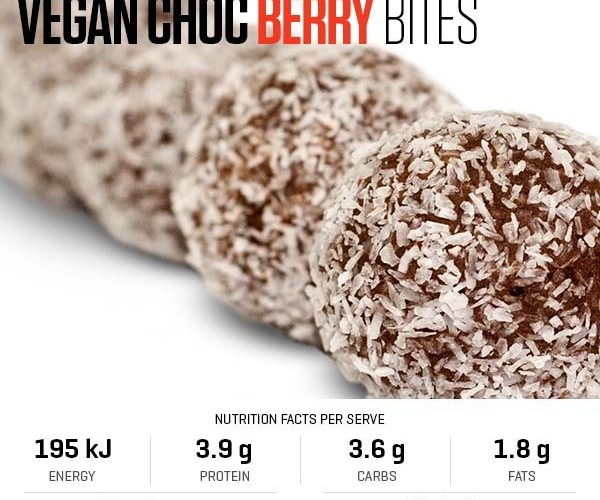
Vegan Choc Berry Bites
Posted by Nicole Frain
Recipe difficulty: Easy
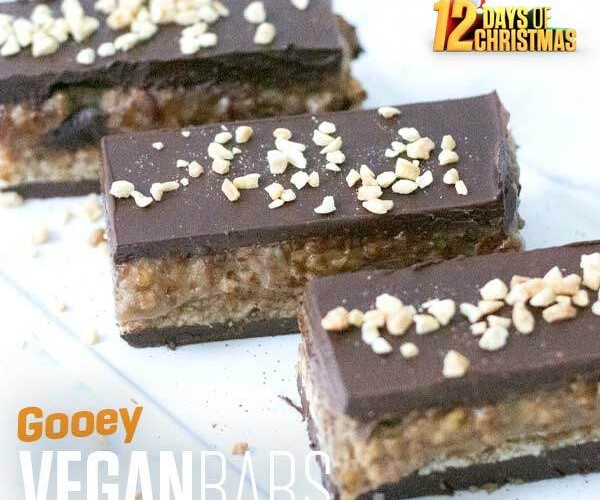
Gooey Vegan Bars Recipe
Posted by Nicole Frain
Recipe difficulty: Moderate
